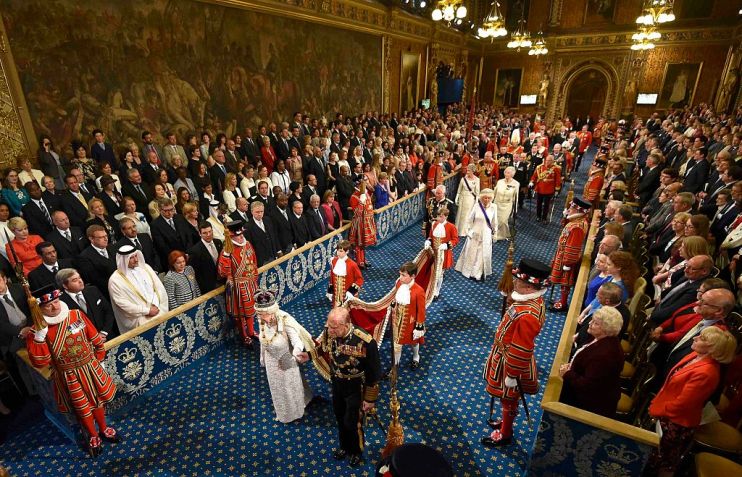Ennobling your mates maintains the finest tradition of the House of Lords

Britain’s upper chamber is a place of tradition: the Woolsack, the ermine, the outrage over who a Prime Minister has placed there.
Boris Johnson’s latest ennoblements have been no exception. Since the honours were announced last week there has been much said about both the size and content of this newest cohort. Yet really, his actions are little different from his predecessors.
Every Prime Minister for the last century has arrived in Downing Street promising to improve such appointments. Each has then promptly indulged party donors, political allies, and old friends. Over the years a range of rogues, fraudsters and former flatmates have been handed titles when PMs pledged to Lords Reform have got to write their list.
The elevation of Johnson’s own brother and of Claire Fox, a campaigner with a history of defending terrorist organisations and denying genocide, will rankle with most good thinking people. Yet many equally egregious appointments have been made in history.
Lloyd George funded his own campaigns by openly selling off honours. Ten thousand pounds was enough to secure a knighthood, while a peerage would set you back around fifty thousand. The resultant scandal saw the advertising of honours for sale become outlawed, with the PM’s barony broker Maundy Gregory subsequently going to jail for related offences.
It was, however, with the introduction of life peerages in the late 1950s that Lords Appointments became a regular source of opprobrium for Prime Ministers. With the push to ensure more “working peers”, and the fact that offering an honour no longer meant attaching it to their bodily heirs in perpetuity, packing the lords became part of politics.
Harold Wilson obliterated his own reputation with a dubious set of Resignation Honours. The so-called Lavender List, named for his secretary’s coloured notepaper, was driven through despite objections from the civil service and criticised by his own MPs for rewarding “adventurous businessmen” with little connection to the Labour cause. One of Wilson’s peers was subsequently convicted of fraud, while another took his own life amid similar allegations.
Two decades later, the significant reform of the Lords only enshrined the tradition of questionable political appointments. When Tony Blair kicked out most of the hereditary peers, he replaced them with a record number of lifetime appointments. These included his former boss, an old flatmate, and various others of “Tony’s Cronies”.
He was equally generous with party donors. With echoes of Lloyd George’s scandal, it transpired that every individual who had donated at least £1m to the Labour party had received a peerage or knighthood. Though a police investigation found no evidence of illegality, the Cash for Honours scandal damaged the twilight of Blair’s premiership.
Since then, each round of appointments has had some attendant impropriety. Gordon Brown courted the limelight when he found a title for Apprentice host Alan Sugar, while David Cameron swelled the chamber to counteract Blair’s profligate handing out of peerages. His picks included former MPs implicated in the expenses scandal, and another slew of big donors. Theresa May made few peers but sending some of the architects of her disastrous 2017 election to the Lords raised eyebrows too.
With Boris, it is only the flavour of the criticism, not the fact of it, that is new. We still must ask, as one hereditary peer did when faced with a lifelong appointee, “is it really better to be chosen by Harold Wilson than the Almighty?” Even with independent oversight, appointments to the Lords are part of the political game, and so it is played — either to win support from your donors, your voters, or in the Lords itself.
Puzzling patronage is as much a part of the Other Place as the red benches.
Main image credit: Getty
